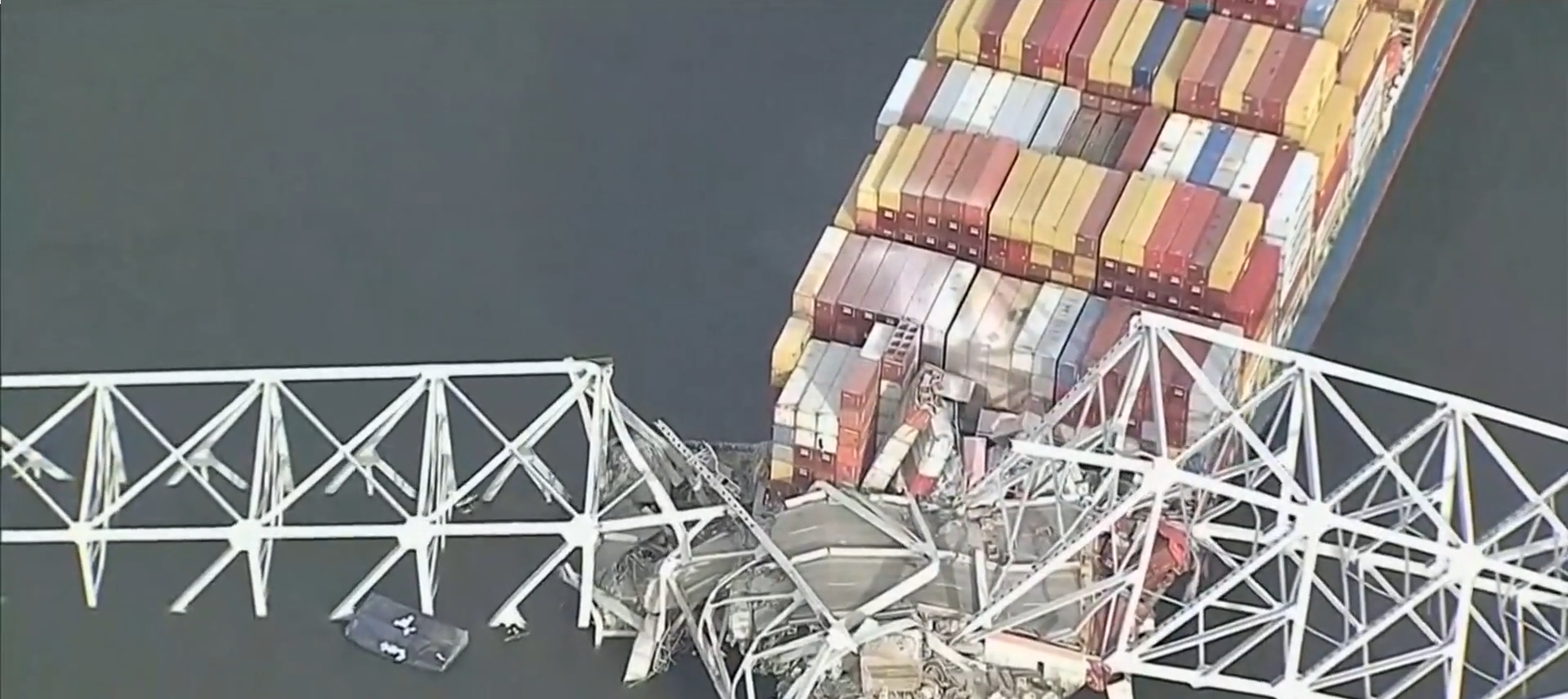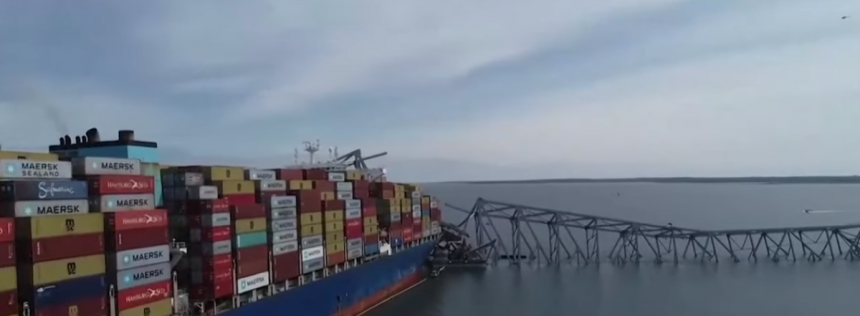The Biden administration has approved $60 million in emergency funds requested by Maryland to aid in the cleanup efforts following the collapse of the Francis Scott Key Bridge in Baltimore. The cargo ship collision resulted in the deaths of six individuals.
Governor Wes Moore outlined the plans for utilizing the funds, which include clearing debris, removing the ship, extracting bridge pieces, and rebuilding the structure. The cargo vessel involved in the collision, named the Dali, is nearly as long as the Eiffel Tower.
Maryland has requested various resources to assist in the cleanup process, and the initial funding from the federal government will support mobilization, operations, and debris recovery efforts.
Governor Moore expressed gratitude to President Biden, Secretary Buttigieg, the federal delegation, and other federal partners for their support during this challenging time. The administration’s continued assistance has been instrumental in addressing the aftermath of the bridge collapse.
The collision occurred early Tuesday morning, leading to eight construction workers falling into the Patapsco River. While some individuals have been treated and discharged, tragically, four workers remain missing and are presumed to have lost their lives.
Given the scale of the emergency, Maryland’s resources are limited, and federal assistance is crucial to effectively respond to and manage the situation. Governor Moore emphasized the necessity of external support to address an emergency of this magnitude.
FHWA Releases $60 Million Emergency Relief Funds for Francis Scott Key Bridge Reconstruction

The U.S. Department of Transportation’s Federal Highway Administration (FHWA) has swiftly responded to the request from Maryland for assistance following the collapse of the Francis Scott Key Bridge. In a rapid move, the FHWA announced the immediate availability of $60 million in “quick release” Emergency Relief (ER) funds to support the rebuilding efforts.
U.S. Transportation Secretary Pete Buttigieg emphasized the federal government’s commitment to providing necessary resources to address the aftermath of the bridge collapse. The release of emergency funds serves as an initial step to help Maryland initiate urgent work, with additional funding to follow as recovery and rebuilding progress.
FHWA Administrator Shailen Bhatt echoed this sentiment, affirming the agency’s dedication to supporting President Biden’s whole-of-government response to the incident. The Emergency Relief funding provides an initial down payment to assist Maryland in managing disruptions to traffic, supply chains, and daily life resulting from the bridge collapse.
FHWA’s Emergency Relief program offers financial assistance for highways and bridges damaged by natural disasters or catastrophic events. The “quick release” funds aim to restore essential transportation infrastructure promptly. Subsequent funds required for the bridge reconstruction will be provided through nationwide allocations from the Emergency Relief program.
The Francis Scott Key Bridge, situated in the Baltimore Harbor and Port of Baltimore, plays a crucial role in regional and national transportation networks. The closure of the channel and suspension of shipping traffic to the Seagirt Marine Terminal have significant economic implications. FHWA is actively collaborating with federal, state, and local authorities to mitigate supply chain impacts, manage traffic, reopen the port, and rebuild the bridge.
Maryland’s declaration of a State of Emergency has enabled FHWA to approve MDOT’s application for Emergency Relief funding. These funds will cover eligible costs related to debris removal, demolition, detours, emergency repairs, and reconstruction of I-695 and the Francis Scott Key Bridge.
FHWA’s Emergency Relief program aligns with the goals of the Bipartisan Infrastructure Law by promoting resilience in the design, restoration, and repair of damaged infrastructure. This approach aims to enhance infrastructure’s ability to withstand future damage from climate change and extreme weather events.









